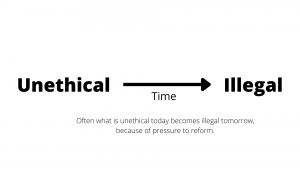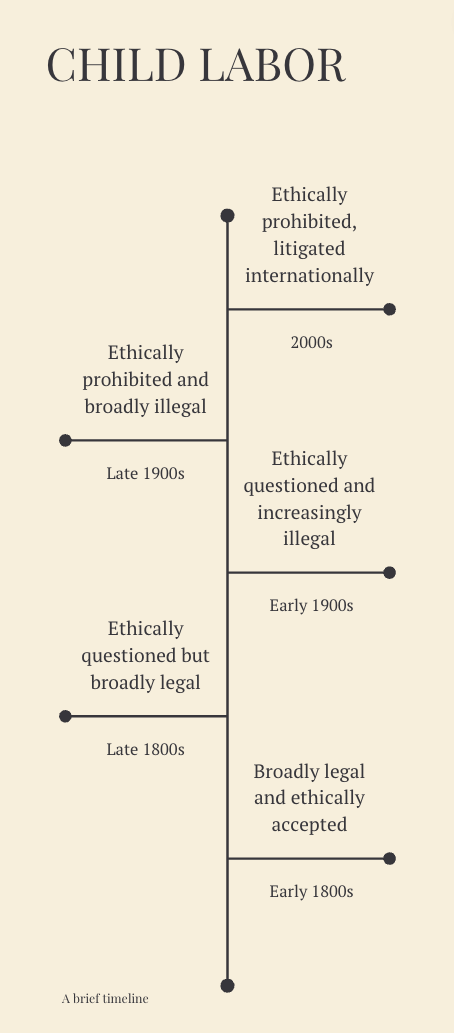Part 1: The Relationship of Legal and Ethical Duties
8 How does the relationship between law and ethics change over time?

Often, what is considered merely an ethical violation in one time period becomes a legal violation in the next time period. This is because ethical violations often cause pressure for reform, so that new laws are passed which regulate the unethical behavior. Consider the diagram below, which shows attitudes of law and ethics towards child labor over many decades. What was once generally accepted became considered unethical, and laws were eventually passed which made the practice illegal.

In many other situations, laws are passed as a result of an ethical crisis. For instance, the crisis at Enron resulted in federal laws which aimed to help prevent the kind of unethical behaviors which resulted in the fall of the company. A public crisis may highlight that ethical lapses resulted in harm to society, and society may respond by passing legislation to stop the crisis from happening again. One lesson for companies is that behaving ethically in the present may save them from having to adjust their future behavior in a costly manner, when what is merely unethical today does become legally prohibited.

Exercises
- Consider the example of child labor presented above. Why do you think attitudes towards child labor changed over time, so that what was once considered generally ethical is now considered generally abhorrent?

